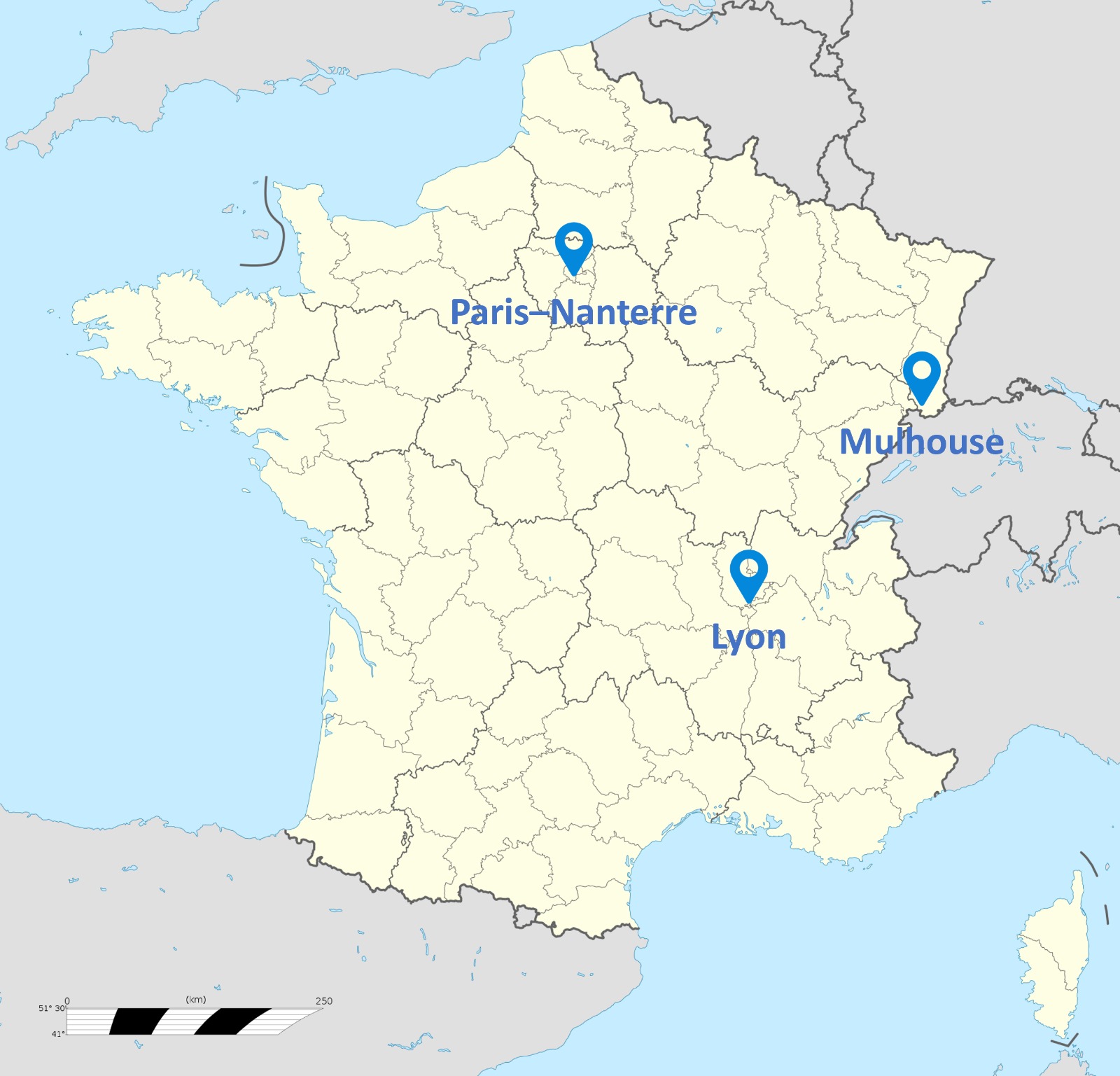The Project
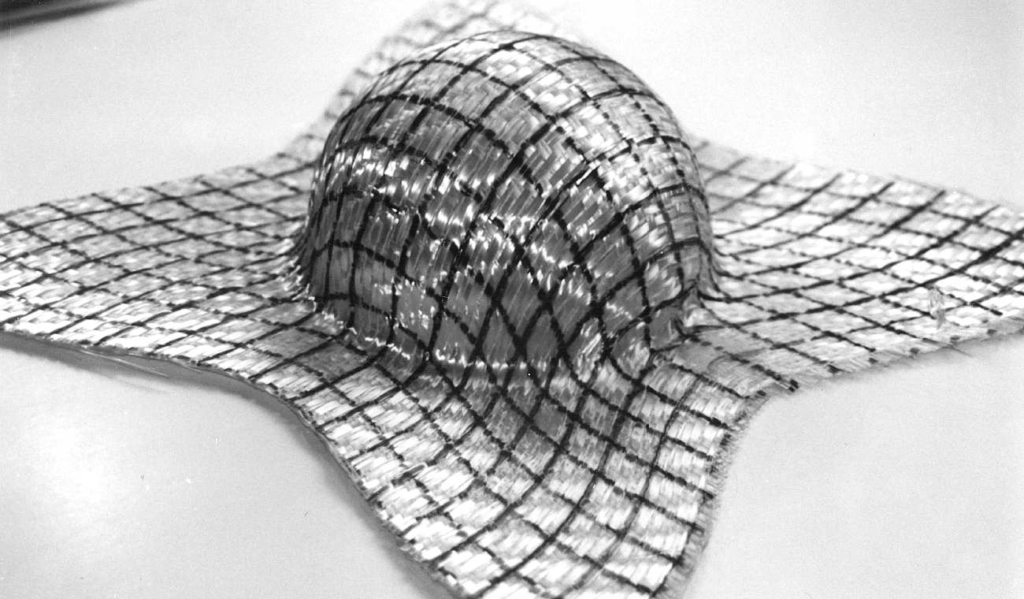
textile with drawn lines to prove material continuity
during forming process
CoqFib ANR Project aims to develop two specific finite elements to model continuous fiber renforcements forming. These elements will be representative of fribrous behavior observed in dry textile and prepregs. To insure a global understanding of forming processes, both macroscopic and mesoscopic approach will be set and expriments will hilight physical phenomenons and caracterise mechanical properties.
Thus CoqFib project is based on the coordination of three French laboratories: LEME, LPMT, LaMCoS. Each of them being responsible of one task among: macroscopic modeling, mesoscopic modeling, caracterisation and validation.
The main assumptions concerning the fibrous behaviour of textiles are the quasi-inextensibility of fibers and their relative slippage which both participate to normal material vector orientation as we can see with the red line on the Fig 2. Indeed, the red line orientation is neither orthogonal to the midline nor dependant to transverse shear which means that classic Cauchy theory used for continuum mechanics, e.g. for metal sheet forming process, are not relevant to model the behaviour of textile reinforcement. Thus, COQFIB project’s objective is to propose new numerical tools specific to these materials.
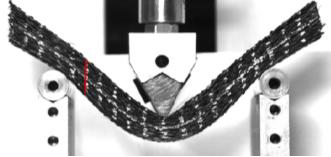
of interlock with material direction drawn
to show cross section orientation
The Team
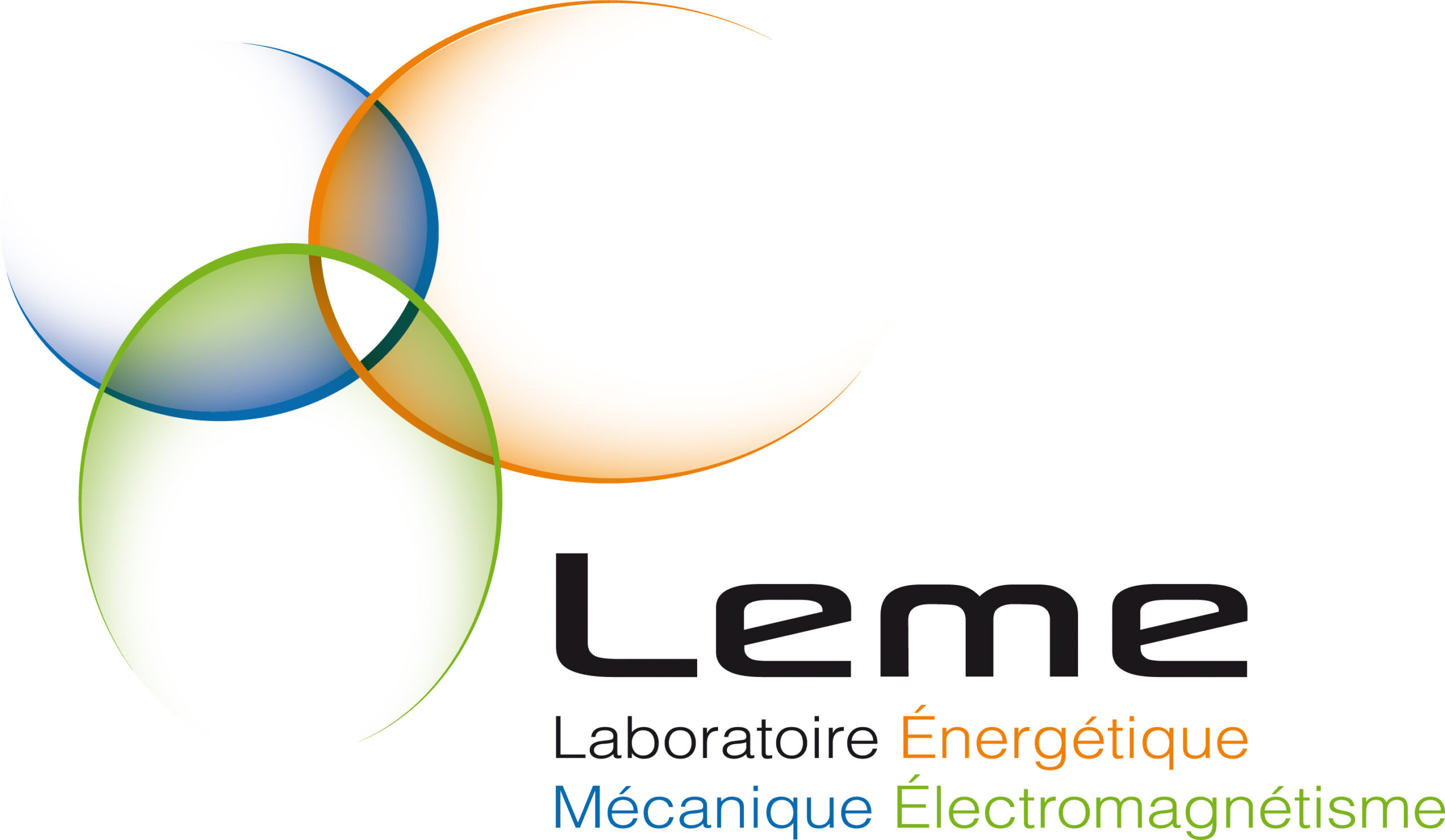
Laboratoire Energétique Mécanique Electromagnétisme (LEME)
– Université Paris Nanterre
- Olivier Polit
- Michele d’Ottavio
- Philippe Vidal
- Emmanuel Valot
- Bruno Cotrim
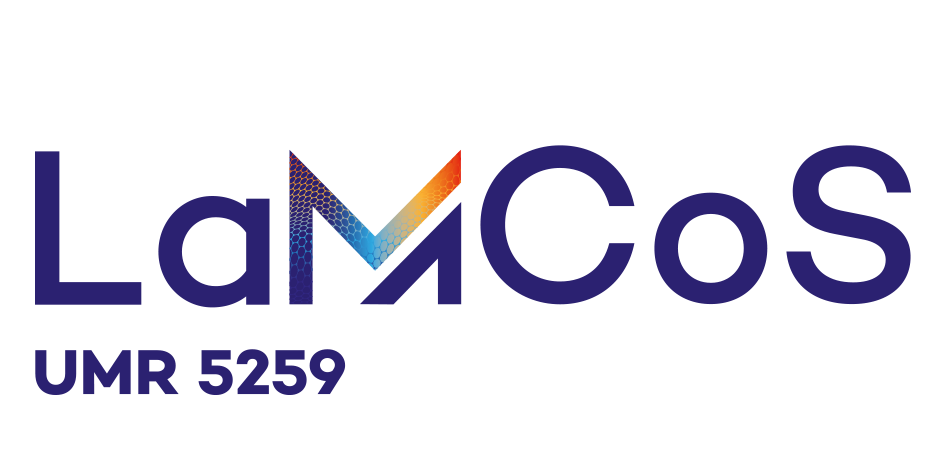
Laboratoire de Mécanique des Contacts et des Structures (LAMCOS)
– Université de Lyon
- Philippe Boisse
- Emmanuelle Vidal-Sallé
- Naim Naouar
- Julien Colmars
- Auriane Platzer
- Baptiste Lacroix

Laboratoire de Physique et Mécanique Textiles (LPMT)
– Université Haute Alsace
- Peng Wang
- Karine Gautier
- Michel Tourlonias
- Théo Perrin
